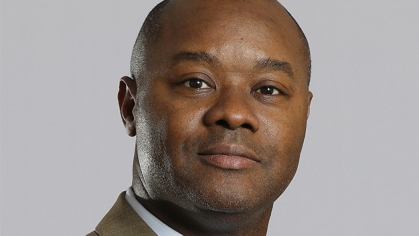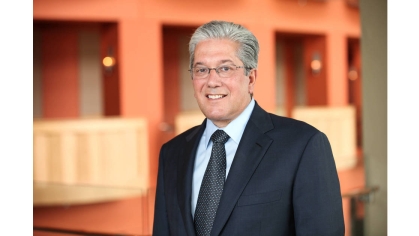Rutgers-Newark Expert on Black Women Leaders Weighs in on Presidential Debate
Hyacinth Miller, of the Sheila Y. Oliver Center for Politics and Race in America at Rutgers-Newark, is a professor of Africana Studies and Political Science. An expert on Black women in politics and Caribbean immigrants in the U.S., Miller spent more than 10 years working as a government affairs analyst, lobbyist, and staffer to elected officials on the city, state, and federal levels.
The racist stereotype of the “angry Black woman” has often been used against Black women leaders on the public stage. How did Vice-President Kamala Harris avoid playing into that in her debate against former President Donald Trump?
In the United States when Black women are assertive, confident, trying to make a point, or expressing any sort of emotion that is not “demure,” they are called an angry Black woman. The minute you are called an angry Black woman, that invalidates all of your points and discredits you as a speaker, so the message becomes overlooked or obscured. This is probably why she didn’t engage in a back-and-forth with Trump that much. But in watching it again, I realized also that she is a gifted attorney. A lot of the things that she said got under his skin, so he had no choice but to attempt to defend himself. In learning how not to be perceived as the angry Black woman, she was able to set all of the “traps” for him, where he looked like the angry, flustered person. She successfully kept her level of composure, and anything that might have kept her off message was minimally addressed, if at all. She raised the fact that he was both impeached and a convicted felon. She stuck to the facts and explained her policy positions. I read some comments on Twitter that her facial expressions appeared smirky or exaggerated, which is something that’s used against Black women, and women in general. I did not see as many comments about his facial expressions.
When Harris’s racial identity was made an issue during the debate, what did you think of her response?
During the debate, Trump didn’t raise it, it was the moderators. That was problematic. Why did the moderators bring it up? Why were they piling on and giving more life and breath to his comment about whether or not she’s Black or Asian? Why didn’t the moderators stick to questions about policy and why is no one questioning him about his race? Whiteness is never addressed, it’s rarely interrogated. It’s always the opposite. It makes anything except whiteness “the other.’’ They fell into the trap of “othering” a presidential candidate. And that’s really unfortunate. A part of me wanted her to declaratively say, I’m a Black woman, so what? Another part of me understands why she didn't say that because she should not have to address the conversation at all. If she entered into a back-and-forth about her race with the moderators and Trump, who knows where it would have led because Trump was definitely trying to get under her skin. And one of the ways you try to get under the skin of Black people is to talk about their race and question their loyalty to Black people.
Trump amplified false stories of Haitian immigrants eating dogs and cats in Springfield, Ohio, where there is an increased number of Haitian immigrants. As an expert on the Caribbean American community, how did that perpetuate racist stereotypes, and what did you think of Harris’s response?
That was vexing because I wanted her to say something specifically to highlight how racist that comment was. But she chose to approach it in a different way, to call it “extreme.” For me, that was not enough, but to be fair, this is what I study. I don’t think there has been an adequate response addressing how shameful that comment is coming from someone who wants to lead the country.
For centuries, Black people have been called savages and cannibalistic, and Haitians have suffered in particular from those tropes that associate them with animals. They were blamed for starting the AIDS pandemic by eating monkeys. It was an insidious and racist lie. The town officials have said that reports of them eating pets are not true. And calling them “illegal”-- which isn’t true because humans aren’t illegal, undocumented yes, illegal, no–is wrong because some are here under temporary protected status. Other Haitians have green cards and are citizens. They chose a place in Ohio where there were opportunities and helped to resurrect the economy. There was a published comment from a minister in town who argued that the Catholic church was dying until Haitians came and filled the pews. Many Haitians are Catholic. But now, the Haitian community has to contend with yet another lie, one that is repeated on the national stage, which can cause them physical harm. It’s going to affect Haitian people everywhere, who may feel under attack, once again, and what that comment has the potential to do is mobilize them more than ever to come out in support of Kamala. Haitians, Jamaicans, Cubans and Dominicans are the four largest groups of Caribbean people in America, so they do have the numbers to make an impact up and down the ballot.


